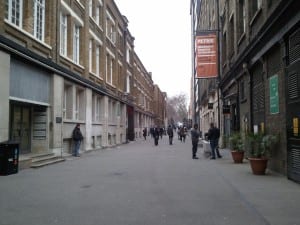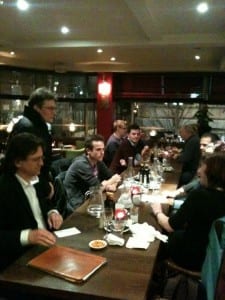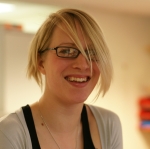#libday8 – Tuesday
By uczcjye, on 31 January 2012
This blog entry is part of a series of posts by DIS students for the Library Day in the Life Project.
My day at library school began with my usual commute into London from Watford, which is a quick and easy train journey into Euston station, followed by a short walk to UCL. On Tuesday mornings, everyone who is taking the MA in Library and Information Studies attends lectures on Management, and during the first half of today’s lecture we were looking specifically at strategic planning. We learned about the various processes which are necessary for the creation and implementation of a strategic plan, and we identified the ways in which the current economic and political climate was likely to have an impact on strategic planning within libraries.
The second half of our Management lecture usually takes place in a different room, which today meant that we had to brave the cold and snowy conditions in order to make our way to the other side of campus. Once seated again in the lecture theatre, we were given a lecture on professional ethics and on our responsibility as librarians to ensure that concern for the public good underpinned all of our planning and policy-making activities.
During the final part of the lecture, we were set a group work assignment to write a mission statement and a strategic plan for the imaginary libraries that we had created as part of the Collection Management module last term. Each group will eventually have to produce an assessed portfolio on these libraries, which will include details on budget, service planning, recruitment and management structures.
After the lecture, most of us retreated to the DIS common room for lunch and hot drinks as it was still extremely cold outside! I have a free afternoon on Tuesdays because I take my optional module in Web Publishing on a Friday, so I decided to spend the rest of the day in the Library reading up on copyright law in preparation for my Management essay on legal issues in libraries.
Today was a longer day than usual for me because I attended a workshop in the evening on how to run a school book club. The UCL Schools Book Club is a volunteering group which runs lunchtime book discussions at secondary schools in and around London and I have decided to take part in this in order to gain some additional experience of working with young people. At the meeting tonight we were each assigned to a school which had requested volunteers, and so it looks like I will soon be co-running a book club for A-Level English Literature students, which should be both exciting and challenging!
 Close
Close



 This week is the
This week is the 


 This week’s
This week’s 